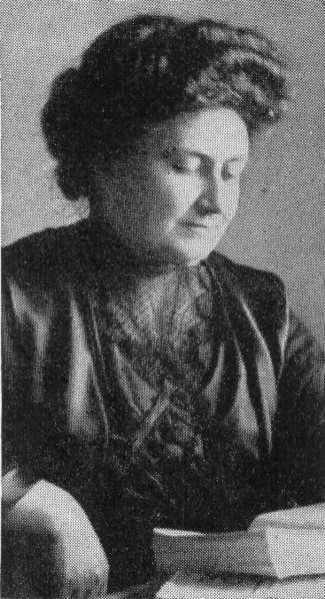Maria Montessori, Educator Whose Method Changed The School System, Honored With Google Doodle On Her 142nd Birthday

Maria Montessori's 142nd birthday has been commemorated by Google, with the search engine giant dedicating their daily doodle to the Italian physician. She was well known for her philosophical ideas and education methods, which bear her name and are used in schools throughout the world.
Friday's Google doodle symbolizes the contribution Montessori made to the education system, with images of children's educational toys spelling out the letters of the website. Montessori was born in Chiaravalle, Italy on August 31, 1870, before her family moved to Rome in 1875.
It was at this time she enrolled in a pubic elementary school at the age of 6. Later in life after her teen years, Montessori graduated from the Regia Scuola Tecnica Michaelangelo Buonarroti technical school at the age of 20. She then decided to pursue a career in medicine, which was unheard of for women at that time.
After completing the medical program at the University of Rome, Montessori became the first female to earn the honor of a doctorate of medicine. She was accepted as a voluntary assistant at the University's psychiatric clinic, visiting asylums in Rome where she observed children with mental disabilities. These findings have contributed to what has been known as the Montessori education values practiced in classrooms around the world:
- Mixed age classrooms, including classrooms for children aged 2 and a half or 3 to 9 years of age which are the most common.
- Student choice of activity from within a prescribed range of options
- Uninterrupted blocks of work time
- A Constructivist or "discovery" model, where students learn concepts from working with materials rather than by direct institution.
- Specialized educational materials developed by Montessori and her collaborators.
However, the road to success wasn't an easy one for Montessori. She faced discrimination from students and faculty throughout her college career because of her gender. It was thought of as inappropriate for her to attend class with men in the presence of a naked body, so Montessori was forced to perform her cadaver dissections alone after class.
"Maria Montessori, the physician and educator, may not be remembered as a feminist figure, but lived a bold live," writes Laura Edwins of the Christian Science Monitor.
She went on to found the Casa dei Bambini, or Children's House, at the age of 36, to experiment with her education methods. Rather than teaching the children, Montessori trained the teachers and oversaw their work while observing the students. These methods quickly spread, and before long she was training teachers around the globe.
In the Ukraine, it was recently reported that the Montessori method has been instated in the Clever Kids Club in addition to half a dozen other children's centers in the area.
"It's not about intellectual or physical development," Lynne Lawrence, executive director of the Association Montessori Internationale said to Kyiv Post. "It's about putting the right building blocks in place at the beginning of life for children to make more of what they have in the future."
Montessori died at the age of 81 on May 6, 1952, and was nominated for the Nobel Peace Prize three times. She believed that her achievements came from the children themselves just as much as it did from her own work.
"It is not true that I invented what is called the Montessori Method," she said. "...I have studied the child, I have taken what the child has given me and expressed it, and that is what is called the Montessori Method."
© Copyright IBTimes 2024. All rights reserved.






















